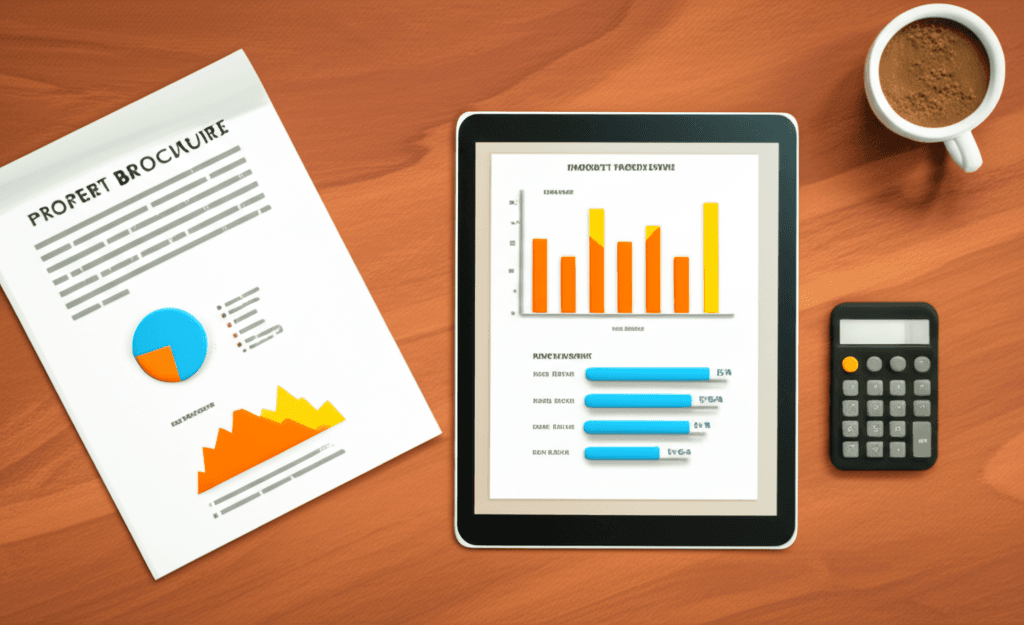Auction Strategy 2025: Insider Tips to Win Your Next Home
Master the art of the auction with insider strategies on bidding, negotiation, and due diligence to secure your dream property in a competitive market.

Introduction
Navigating the Australian property auction scene in mid-2025 can feel overwhelming. The buzz, the fast-paced bidding, and the immense pressure can make even the most prepared buyer nervous. Being the highest bidder requires more than just the biggest budget; it demands a sharp strategy, psychological resilience, and a deep understanding of the game. This guide demystifies the auction process, drawing on expert insights to give you the confidence and tactics needed to come out on top. Whether you're a nervous first-time buyer or a seasoned investor, these strategies will help you cut through the noise and secure your next property.
Understanding the 2025 Auction Landscape
The current market is defined by a unique set of conditions. Post-COVID, we saw fluctuations in stock levels as many homeowners who made decisions during the pandemic chose to stay put. This created a 'chicken and egg' scenario where potential sellers hesitated to list their properties without first finding a new home to move to, further tightening supply.
Today, buyer sentiment is the driving force. There are enough buyers and sufficient capital in the market, but there's a lack of urgency. This is why auctions have become a preferred method for sellers—they create a deadline and force buyers to act. While every property type, from townhomes to family houses, is heading to auction, success hinges on understanding market dynamics, not just the property itself. To make informed decisions, you need access to powerful real estate analytics that reveal underlying trends in clearance rates, days on market, and suburb performance.
The Psychology of the Auction Floor
An auction is as much a psychological battle as it is a financial transaction. The atmosphere is charged with anticipation and nervousness, and as a buyer, understanding these dynamics is your first strategic advantage.
Reading the Room
A professional can spot a nervous bidder from a mile away. They watch for tells: the way someone walks towards the property, their body language, or how they interact with the agents. Agents often approach pre-registered bidders to confirm details like settlement terms, giving away clues as to who the serious contenders are. A buyer who has done their homework—completed a building inspection and contract review—acts differently from a casual observer. Those who arrive on the day and decide to bid on a whim are often unprepared for potential issues with the property.

The Power of Social Proof
Social proof is a powerful force. When multiple people are bidding, it validates the property's appeal and can drive prices higher. Conversely, if a property passes in, buyers might second-guess its value simply because no one else raised their hand. Don't fall into this trap. Your decision should be based on your own thorough research and what the property is worth to you, not on the actions of the crowd.
Building a Winning Auction Strategy
Success at auction is born from meticulous preparation. On the day, you need to be ready to act decisively, backed by a solid plan and unwavering confidence in your numbers.
Do Your Homework: The Power of Due Diligence
Your most critical task happens before auction day. You must know what the property is worth. This involves a deep dive into comparable sales, analyzing block sizes, orientation, condition, and streetscape. Using advanced real estate analytics allows you to overlay key metrics like capital growth and rental yield to establish a clear market value. You must also have your finances in order and conduct all necessary due diligence, such as building inspections and contract reviews, as auction sales are unconditional.
Based on this research, you must establish a firm 'walk-away' price. If the property is particularly rare or special, you might decide to add a small emotional buffer, but this limit must be set in the cold light of day, well before the high-pressure environment of the auction.

Master Your Bidding Technique
How you bid can influence the outcome just as much as how much you bid.
Project Confidence: Bid with speed and clarity. A quick, decisive bid places the pressure back on your competitors. As auctioneer Andy Reid notes, "The more time that you are holding the highest bid, the more pressure there is on everybody else."
Be Unpredictable: Vary your tactics. Sometimes, a strong, loud bid can show authority. Other times, small, annoying, but rapid-fire bids can frustrate an opponent and throw them off their rhythm. The key is to read your opponent's body language. When they start hesitating, looking at their partner, or their bidding style changes, you know they are near their limit.
Control Your Emotions: Many seasoned buyers use a professional, like a buyer's agent, to bid on their behalf. This removes emotion from the equation and prevents you from making a costly mistake under pressure. A professional bidder is also an expert at reading the competition and deploying the right strategy at the right moment.
What to Do When a Property Passes In
If a property fails to meet its reserve price and 'passes in,' the game is not over—it simply shifts from an auction to a negotiation. The highest bidder usually earns the exclusive right to negotiate with the seller first. This is a golden opportunity, but it's also fraught with risk.
Sellers are emotionally invested and vulnerable on auction day, which can create an opening for a sharp negotiation. However, buyers often make the mistake of assuming the passed-in price is the new market value. If a property worth $1 million passes in at $920,000, lowballing at that price will likely offend the vendor and cause you to lose your exclusive opportunity. Arm yourself with your comparable sales data and negotiate based on logic and evidence. Be firm but fair, and be ready to act quickly. If you can't seal the deal, the agent will open negotiations to all other interested parties.
Conclusion: Your Path to Auction Success
Winning at auction is a skill that blends art and science. It requires deep market knowledge, unwavering preparation, and a keen understanding of human psychology. The key takeaways are simple but powerful: do your homework to establish a non-negotiable limit, control your emotions on the day, and bid with confident, strategic intent. Don't be afraid to ask the auctioneer questions if you're unsure what's happening—clarity is your friend.
For many, the intensity of auction day is best navigated with an expert guide. A professional can provide the objective analysis and tactical execution needed to succeed. To equip yourself with the ultimate advantage, explore how HouseSeeker's AI Buyer's Agent can guide your search, analyze your options, and prepare you with a winning strategy for your next auction.
Frequently Asked Questions
Why should I do a building inspection before an unconditional auction?
An auction contract is unconditional, meaning you are legally bound to purchase the property as-is once the hammer falls. A pre-auction building and pest inspection is crucial to uncover any significant defects or structural issues that could be costly to repair. Skipping this step is a major financial risk.
How do I determine my 'walk-away' price?
Your walk-away price should be based on objective data. Start by conducting a thorough analysis of recent, comparable sales in the area. Use a platform with strong real estate analytics to understand the property's market value. Factor in your own financial position and what you are willing to pay. Finally, add a small, pre-determined buffer for a property you truly love, but commit to not exceeding this absolute limit.
What's the biggest mistake a nervous first-time bidder makes?
Beyond a lack of preparation, the most common mistake is inaction. Many nervous bidders wait too long to start, hoping the property will pass in so they can negotiate. As seen in many auctions, this often backfires. By not participating, they lose control, and the property frequently sells for a higher price in post-auction negotiations than it would have under the hammer. The key is to get involved and make your presence known.
